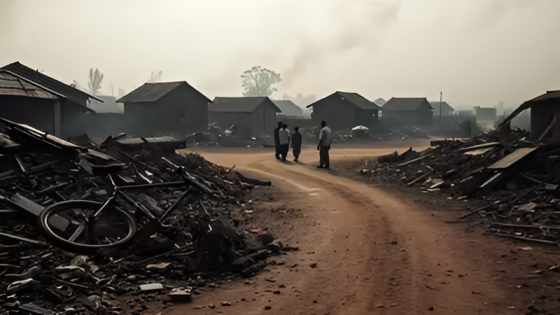Gunmen kill over 100 in deadly attack on village in Nigeria

The Nigerian chapter of the rights organization reported that the massacre took place between Friday night and early Saturday in Yelewata, a village situated in Guma Local Government Area of Benue State.
More than 100 people are feared dead following a deadly gun assault in a village located in north-central Nigeria, according to Amnesty International.
The Nigerian chapter of the rights organization reported that the massacre took place between Friday night and early Saturday in Yelewata, a village situated in Guma Local Government Area of Benue State.
Amnesty International reported that numerous families were trapped and set ablaze in their homes during the brutal assault, with many victims burned beyond recognition.
The organization added that hundreds sustained injuries and are currently lacking access to proper medical treatment, while scores remain unaccounted for.
Authorities in Benue State acknowledged that an attack had occurred in Yelewata, but a police spokesperson declined to confirm the number of fatalities.
Amnesty International has raised concern over a disturbing surge in deadly violence across Benue State, describing the recent wave of attacks as a “killing spree” carried out with impunity.
In a strongly worded statement, the human rights group criticized the Nigerian government for its inaction, warning that the continued failure to curb the unrest is costing innocent lives and threatening livelihoods. “Unless urgent steps are taken, more bloodshed is inevitable,” the organization cautioned.
Just last month, suspected herders reportedly killed at least 20 people in Gwer West, an area within Benue. In April, another deadly incident in neighboring Plateau State left over 40 people dead.
Benue lies within Nigeria’s volatile Middle Belt, a zone that bridges the predominantly Muslim north and largely Christian south a region frequently plagued by land and resource-related conflict.
Clashes between farmers and herders are a recurring issue, often fuelled by disputes over grazing land and water access.
Farmers accuse Fulani herders of destroying crops by grazing on their fields, while the herders argue that the disputed routes are legally recognized grazing paths, some of which date back to the 1960s.
